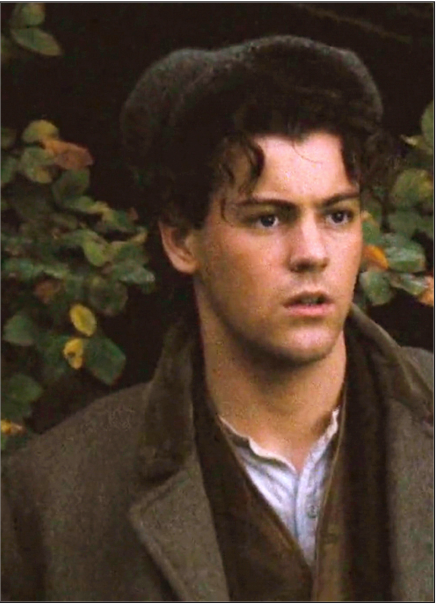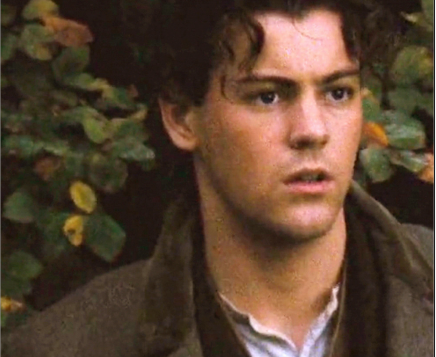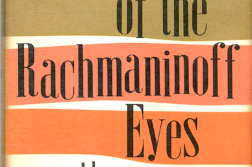I’M SEATED in an art theater and, as the credits end, the houselights rise, and cleaning crews sweep popcorn from the floor. My chest heaves with each sob. The year is 1987, and I’m watching Maurice, a new Merchant-Ivory film based on E.M. Forster’s novel of the same name. In the final scene, two men, wealthy stockbroker Maurice Hall and gamekeeper Alec Scudder, clasp each other and kiss. Then Alec whispers into his lover’s ear a line that wrecks me.
A closeted college student living in my Southern hometown, I had to muster all my courage to buy a ticket to my first gay movie. People might catch me, I feared—and in my hometown, people talked. I ran a red light once in high school. The next day, a friend told me her father recognized my car and said he’d rat me out to my parents if it happened again. At least the cinema was in the wealthy, far northern part of town. The chance I’d encounter anyone I knew was small since my family hailed from the wrong side of the river.
Why was I so moved at the end of Maurice? I may never have watched an LGBT-themed movie or read a book with gay protagonists, but I had seen queer characters in media before. The names and faces changed but the story remained the same: We were twisted figures destined for lives of solitude and misery, pitiable characters if we were lucky, but more often than not we were either the villain or the victim, sure to die at the hand of the hero or, just as frequently, by our own.

Forster defended the novel’s conclusion, stating: “A happy ending was imperative. I shouldn’t have bothered to write otherwise. I was determined that in fiction anyway two men should fall in love and remain in it for the ever and ever that fiction allows, and in this sense, Maurice and Alec still roam the greenwood.” Though the story was imaginary, it nonetheless gave a glimmer of hope. If the tale of Maurice and Alec offered the promise of finding love and acceptance in the arms of another man, perhaps then it might be possible for me. Soon after seeing the movie, I inhaled the book and exited my closet.
Fifty years after the book’s initial release, readers now have the opportunity to reunite with the fictitious couple in a new work. Written by playwright William di Canzio, Alec (published by Farrar, Straus and Giroux) is the equivalent of running into long-lost friends in a restaurant. “Sit down,” they seem to say. “Grab a chair. Let’s talk.”
Di Canzio begins by recounting the history of how the couple came together, but unlike the source work, this time from the gamekeeper’s point of view. If some lines seem eerily familiar to readers of the original novel, it’s probably because King’s College, Cambridge, and the E. M. Forster Estate granted di Canzio permission to quote from the original work. He interweaves the old and new with such skill, especially in the first two parts (“St. John’s Bonfire” and “Kingfisher”) that at times it’s easy to imagine one was reading a long-lost manuscript by Forster himself.
Most of the book, including an epilogue, is devoted to advancing the plot beyond Maurice. The men attempt to create a life together while navigating the era’s expectations of class division and heteronormativity. Then the Great War arrives, disrupting their plans to live happily ever after in the greenwood.
Thirty-five years have passed since I sat in that theater and again—at the end of chapter ten—Alec leaves me teary-eyed when he says: “Now, we shan’t never be parted. It’s finished.”
Court Stroud is a 2021 Lambda Literary Fellow and lives in New York City.







Discussion4 Comments
What a lovely review. I look forward to grabbing a chair and picking up with them, thanks to your introduction.
One of my favorite books and movies ever. Thanks for the review, I will be buying the book immediately!
A touching review, Court. I can still hear Rupert Graves’ voice in that scene by the fire in the boathouse.
Not long ago, my young gay nephew cried for a long time after the ending of Brokeback Mountain. Each generation has its iconic films. At least we’re not dying unhappily in most of them any more.
I have to say I have two broke back mountain and Jeffrey .these are my favorites because broke back was true to the game .these men were both macho men not effeminame which is nothing wrong but the gay movies I saw either one played the fem and the other masculine .this was the first time that I saw a movie that told the story of two masculine and proud gay men even though Ennius had to hide his sexuality but besides that this movie rocks.with jeffrey I liked the comedy part of it plus the sexy men in the movie .now on Netflix you have positive lgbt movies.I also like the fact that there are more issues dealing with bisexuality which I think I may be,praise Netflix and Hulu and others lgbt people have come a long way .thank you very much court.